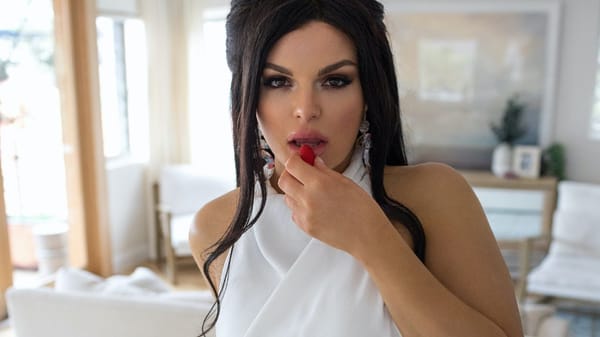fooled—it delivers some powerful business lessons by the end.
Somewhere in Rural Victoria
I grew up in a small, quiet town where secrets didn’t exist—everyone knew your business before you did. It was the place where gossip spread faster than wildfire and life moved to the rhythm of trimmed hedges and the hum of Burke’s Backyard (back in his “innocent” days, of course). Picture streets lined with gum trees, a river lazily winding through town, and the ever-present scent of freshly cut grass. It was picturesque, sure, but for me, it was a pretty lonely place.
When I was eight, life turned upside down. My mum had just run off to Sydney, leaving her small-town life—and my dad—behind. I went with her at first, but the cost of living in the city proved too much. So, for the first time in my life, I found myself back in that sleepy town, living with my dad and his new girlfriend—who was, incidentally, pregnant.
My dad worked long, grueling shifts at the factory. When he wasn’t there, he was passed out drunk on the couch, utterly wiped out. His girlfriend, on the other hand, was preoccupied with her “doctor’s appointments” across town. Let’s just say she gave the locals plenty of gossip to chew on, and her wicked stepmother vibes are still a topic of conversation to this day. But I’ll save that story for another time.
That left me—the lonely, undiagnosed ADHD kid with an overactive imagination and not much to do. Life was dull, beige even—except for one thing: flowers.
In our town, front yards weren’t just gardens; they were masterpieces. Roses, daisies, lilies—they spilled out of every corner, framing homes like living works of art. It was Victoria, after all—the Garden State. These floral displays were the town’s pride and joy, a bright splash of color in an otherwise muted existence.
It was in this floral wonderland that I had an epiphany, one that would shape my young life. At eight years old, I found my first true passion: money. And even better, I discovered the dopamine rush that came when earning it myself. The thrill of making my cash was intoxicating.
That’s where my adventure began. Little did I know, it would lead me down a path of stolen blooms, risky schemes, and a lesson or two about ambition and ethics. But for now, let’s focus on that wide-eyed kid standing in a town full of flowers, ready to turn petals into profit.
The Currency of Childhood
It all started innocently enough. I plucked a few blossoms from our yard, tied them together with bits of yarn I painstakingly scavenged, and paraded them door-to-door. My neighbors were absolute suckers for my wobbly bouquets—each coin they handed over was electric in my tiny hand. I felt unstoppable.
For an eight-year-old growing up in poverty and starting at a new school, money wasn’t just money. It was power. Not the sinister, corrupt kind of adulthood, but a magical brand of power made of shiny coins and endless possibilities. Power was proving your Tamagotchi could survive for more than a week without dying of neglect. It was the sheer opulence of a stack of tazos, or completing the ultimate test of skill—landing three trampoline backflips without crashing into the springs.
Spoiler alert—I sucked at all of that. My Tamagotchi carked it daily, my trampoline sessions were a study in "how to almost break a limb," and my Tazo collection was tragic at best because you needed money to buy chips and get them. But suddenly, with coins jingling in my pocket, I was rich.
Rich! Well, sorta.
The Flower Hustle
It wasn’t long before I hit a roadblock. Demand for my “hand-crafted” arrangements outstripped supply, and my backyard struggled to keep pace. Rookie mistake—I’d assumed flowers grew back overnight, like some kind of magical bloom fairy. Spoiler—they don’t.
Faced with an unforgiving supply chain crisis, I got creative. I took my operation beyond my backyard and into others. Some might call it theft; I called it entrepreneurial spirit. Yes, I became The Flower Thief.
My method? Bold daylight heists. Why sneak around when you can strut into someone’s meticulously tended garden, snip a bouquet, and act like you own the place? Confidence was my superpower.
But my greatest scheme?
Selling these “ethically acquired” blooms back
to the very people, I stole them from.
"My roses are stunning this year!" Mrs. Whittaker cooed.“Yes, they are!” I grinned, presenting her with a “special one.”That’ll be $5.”
Cha-ching.
Scaling Up
Business was booming. On Thursdays, I clocked $150-$250 in a few hours—a goldmine for someone who thought a Happy Meal was haute cuisine. Naturally, I decided to scale the operation.
I recruited a squad of girls as my partners in crime. We’d pedal around town on our bikes, skipping school on sales days, and systematically raiding the best gardens in town. We were efficient, fearless, and disturbingly good at this. Think mobile MLM, except instead of lipstick, our product was stolen flowers.
Then she entered the scene. Tiffany Valentine. My nemesis. She was all pigtails and sass, with killer netball skills and a penchant for ruining my life. Worse still, she launched her rival flower racket on the West side of town.
Her presence set off a full-blown daisy turf war. Tuesdays were hers, Thursdays were mine, and we kept to our respective territories—for the most part. That is until we both eyed expansion into the East side.
East side. The golden mile of Victoria’s finest gardens.
The Daisy Smackdown
What ensued was nothing short of floral warfare. Sabotage became our love language. I may or may not have decapitated a few of her bouquets mid-delivery ninja-style. She retaliated with a rumor that my flowers were infested with bugs. Defamation of character? Absolutely.
It was chaos—sassy eight-year-olds in ballet flats throwing daisy chains like grenades. The tension in the air was thicker than the icing on a Girl Guides cookie
Cracks in the Empire
Turns out, rampant over-picking has consequences. Who knew, right? It all started innocently enough. My crew and I would dash around the neighborhood at dawn, grabbing handfuls of blooms from every garden we could find. We didn’t think much of the withering stems left behind or the empty patches in flowerbeds. The flowers always grew back—at least, that’s what we told ourselves.
But as weeks passed, the neighborhood began to look... different. Gardens that were once lush, colorful oases started to resemble deserted wastelands. Vibrant roses, cheerful daisies, and delicate tulips were now reduced to sad, lifeless stalks. Even the bees, our silent companions in the early hours, were starting to disappear. My friends and I ignored it, of course. We were too busy counting coins and feeling smug about our so-called entrepreneurial brilliance.
The first real sign of trouble came when Mrs. Peabody, an elderly woman known for her immaculate garden, spotted us lurking near her fence. “You lot are like locusts!” she shouted, waving her cane. I laughed it off, but her words stuck with me longer than I expected. Locusts. It wasn’t far from the truth. My cash cow was on its last leg, but I didn’t care. I was too caught up in the thrill of it all—chasing coins, feeling invincible.
And then, one day, my empire crumbled.
Trouble Knocks
It all started with one of my regulars, a middle-aged guy who always wore the same ratty baseball cap and smelled vaguely of motor oil. At first, he seemed harmless enough. He’d show up every week, buying flowers in bulk without much small talk. I figured he was just a guy trying to score points with someone special. But then the questions started.
“How do you find all these flowers?” he asked one day, his eyes narrowing in a way that made me uncomfortable.
“Oh, you know,” I said, trying to sound casual. “We’ve got our spots.”
His smile didn’t quite reach his eyes. “Maybe I can show you some new ones. I know a place where you could get loads more.”
Red flags, anyone? The way he lingered after paying, the questions that felt a little too personal, the way his gaze seemed to stick a second too long—it all screamed trouble. But did we listen? Of course not. We were kids! We thought we were untouchable.
When he offered to take us to his “secret spot,” we barely hesitated. It felt like the next big score, the jackpot that would keep our business afloat. So, one Saturday afternoon, we followed him. My gut twisted as we walked up his driveway toward a run-down house with peeling paint and a lawn overrun with weeds. But I ignored the feeling. Money was money, right?




